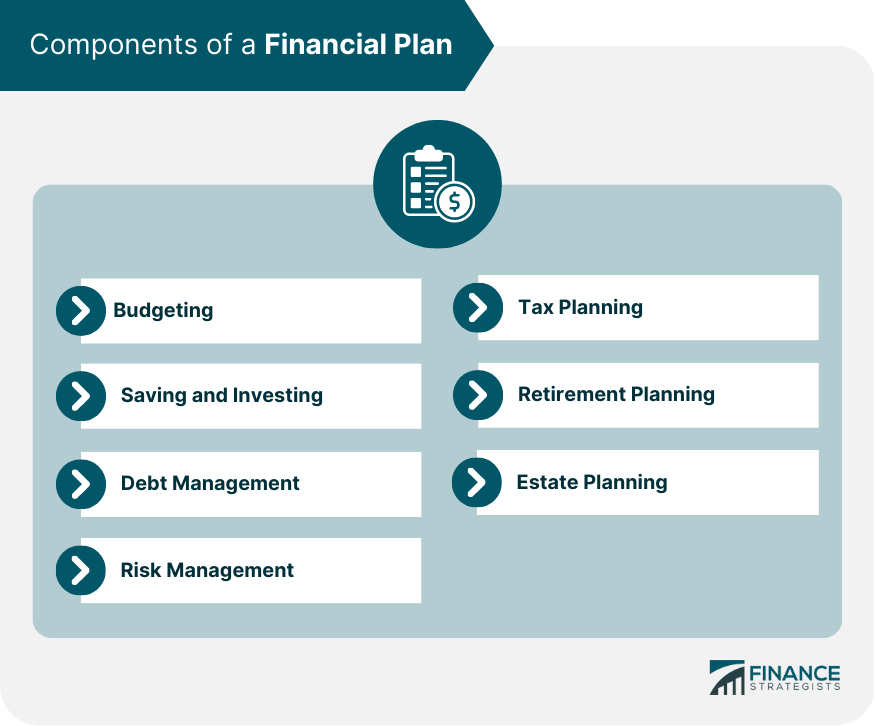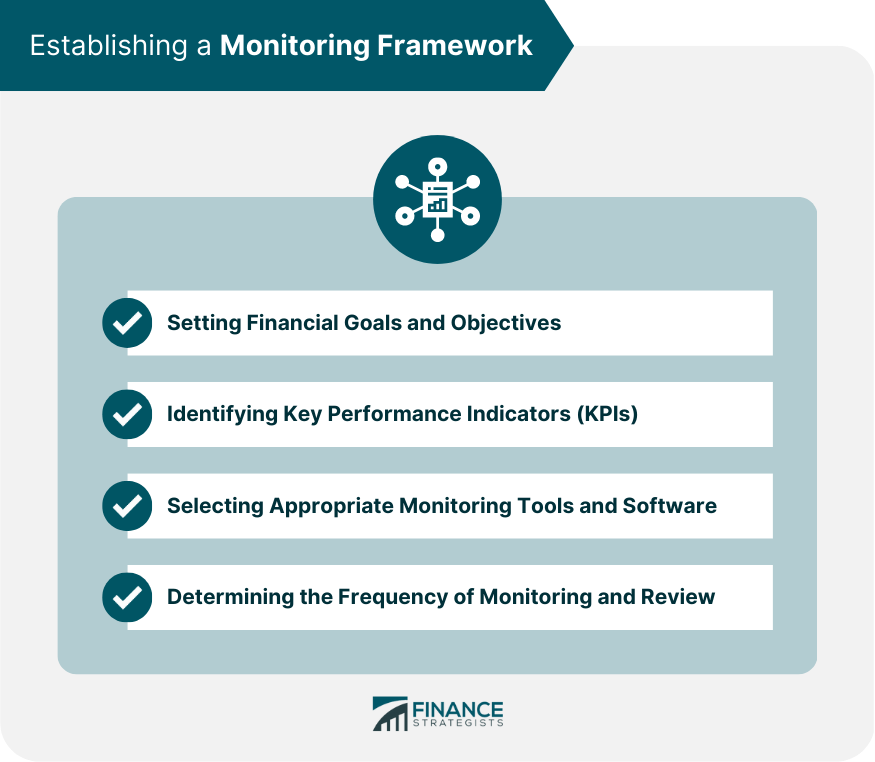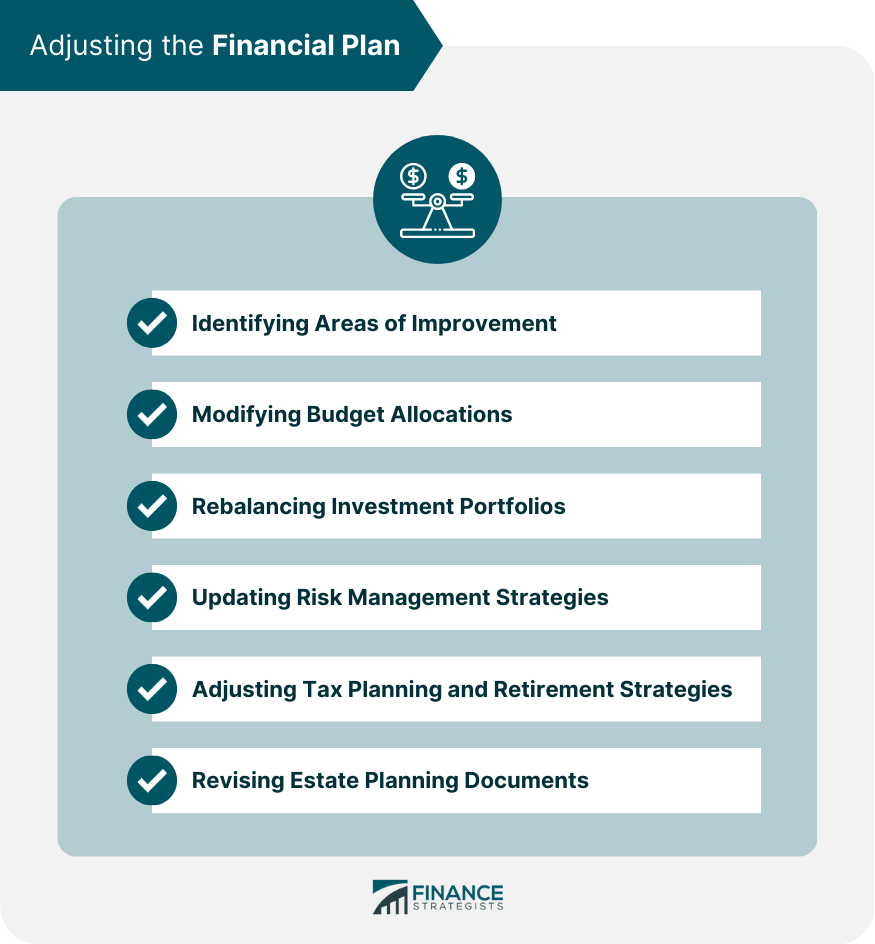Financial plan monitoring is the process of regularly evaluating and adjusting one's financial plan to stay on track with financial goals and objectives. This crucial aspect of personal finance management ensures that individuals and families can meet their financial goals, adapt to changes in their circumstances, and make informed decisions about their financial future. Monitoring a financial plan is essential because it helps identify potential issues before they become major problems, ensures that financial goals are being met, and provides an opportunity to adjust strategies as needed. In addition, ongoing monitoring allows individuals to make better financial decisions and gain a better understanding of their financial situation. The primary objectives of financial plan monitoring include tracking progress towards financial goals, identifying areas for improvement, ensuring compliance with legal and tax requirements, and adapting to changes in personal circumstances or market conditions. A comprehensive financial plan consists of several key components, each of which must be monitored and adjusted as needed to ensure overall financial success. Budgeting involves creating a detailed plan for allocating income and expenses to ensure that financial goals are met. Monitoring one's budget is essential for identifying overspending, making necessary adjustments, and staying on track with financial goals. Saving and investing are crucial for building wealth and achieving long-term financial goals, such as retirement or education funding. Monitoring the performance of savings and investment accounts helps to ensure that they are meeting their intended objectives and allows for adjustments in investment strategies as needed. Debt management involves controlling and reducing debt to minimize interest costs and maintain a healthy credit score. Monitoring debt levels is essential for staying on track with debt repayment plans and avoiding excessive borrowing. Risk management involves protecting oneself and one's assets from potential losses due to accidents, illness, or other unforeseen events. Monitoring insurance coverage and other risk management strategies is important to ensure that adequate protection is in place and to adjust coverage levels as needed. Tax planning involves optimizing one's financial plan to minimize tax liability and take advantage of tax-saving opportunities. Regularly monitoring tax strategies helps ensure compliance with tax laws and allows for adjustments as tax laws change or personal circumstances evolve. Retirement planning involves setting goals for retirement income and developing a strategy to achieve those goals. Monitoring progress towards retirement goals and adjusting the plan as needed is essential for ensuring a secure and comfortable retirement. Estate planning involves developing a plan for the transfer of assets upon death and ensuring that one's wishes are carried out. Regular monitoring and updating of estate planning documents are essential to reflect changes in personal circumstances or tax laws. To effectively monitor a financial plan, it is essential to establish a robust monitoring framework that includes setting goals, identifying key performance indicators (KPIs), selecting appropriate tools and software, and determining the frequency of monitoring and review. Clearly defined financial goals and objectives provide a roadmap for financial success and serve as a basis for monitoring progress. Goals should be specific, measurable, achievable, relevant, and time-bound (SMART). KPIs are measurable values that indicate progress towards financial goals. Examples of KPIs include net worth, savings rate, debt-to-income ratio, and investment portfolio performance. There are many financial tools and software available to help monitor and manage personal finances. Selecting the right tools depends on individual preferences, budget, and the complexity of one's financial situation. The frequency of financial plan monitoring will depend on individual circumstances, goals, and preferences. At a minimum, it is advisable to review and update the financial plan annually, but more frequent monitoring may be necessary to track progress and make adjustments as needed. There are several techniques and strategies that can be employed to effectively monitor a financial plan. Financial statements provide valuable insights into one's financial health and progress towards goals. These include: An income statement provides an overview of income and expenses over a specific period. Regularly reviewing income statements helps to identify trends, detect overspending, and track progress towards budgeting goals. A balance sheet provides a snapshot of one's assets, liabilities, and net worth at a specific point in time. Regularly reviewing balance sheets helps to track changes in net worth, evaluate the effectiveness of debt management strategies, and assess overall financial health. A cash flow statement provides a detailed account of cash inflows and outflows over a specific period. Regularly reviewing cash flow statements helps to ensure that sufficient cash is available to meet financial obligations and to identify opportunities to optimize cash management strategies. Regularly tracking KPIs and comparing them to established benchmarks helps to ensure that the financial plan is on track and allows for adjustments as needed. Comparing actual financial performance to projections helps to identify areas where the financial plan may need adjustments and provides an opportunity to update the plan based on current circumstances. Regularly assessing progress towards financial goals helps to ensure that the plan is working effectively and provides motivation to stay committed to achieving those goals. Monitoring the impact of external factors, such as changes in market conditions, tax laws, or personal circumstances, is crucial for adapting the financial plan as needed to maintain its effectiveness. As part of the monitoring process, it is essential to identify areas of improvement and make necessary adjustments to the financial plan. Regular monitoring can help identify areas where the financial plan may be underperforming or where adjustments may be needed to better align with financial goals. If overspending or under-saving is identified, adjusting budget allocations may be necessary to better align spending and saving habits with financial goals. Regularly reviewing and rebalancing investment portfolios helps to ensure that they continue to align with investment objectives and risk tolerance levels. Regularly reviewing insurance coverage and other risk management strategies helps to ensure that adequate protection is in place and allows for adjustments as personal circumstances or risk levels change. As tax laws and personal circumstances evolve, updating tax planning and retirement strategies may be necessary to optimize financial outcomes and ensure compliance with tax requirements. Regularly reviewing and updating estate planning documents helps to ensure that they continue to reflect one's wishes and account for changes in personal circumstances or tax laws. Effective financial plan monitoring requires ongoing communication and collaboration among all relevant stakeholders. Involving family members, business partners, or other stakeholders in the monitoring process helps to ensure that everyone is aware of the financial plan and committed to its success. Sharing regular updates and progress reports helps to maintain accountability, foster collaboration, and motivate continued progress towards financial goals. In some cases, it may be beneficial to seek professional advice from financial advisors, accountants, or other experts to ensure that the financial plan remains effective and compliant with legal and tax requirements. Financial plan monitoring is an essential component of successful personal finance management. By regularly reviewing and adjusting the various components of a financial plan, individuals can ensure that they are on track to achieve their financial goals, adapt to changes in their circumstances or market conditions, and make informed decisions about their financial future. Establishing a robust monitoring framework, employing effective monitoring techniques and strategies, and maintaining ongoing communication and collaboration among stakeholders are all crucial for ensuring long-term financial success.What Is Financial Plan Monitoring?
Components of a Financial Plan
Budgeting
Saving and Investing
Debt Management
Risk Management
Tax Planning
Retirement Planning
Estate Planning

Establishing a Monitoring Framework
Setting Financial Goals and Objectives
Identifying Key Performance Indicators (KPIs)
Selecting Appropriate Monitoring Tools and Software
Determining the Frequency of Monitoring and Review

Monitoring Techniques and Strategies
Regular Reviews of Financial Statements
Income Statement
Balance Sheet
Cash Flow Statement
Tracking KPIs and Benchmarks
Comparing Actual Performance to Projections
Assessing Progress Towards Financial Goals
Evaluating the Impact of External Factors
Adjusting the Financial Plan
Identifying Areas of Improvement
Modifying Budget Allocations
Rebalancing Investment Portfolios
Updating Risk Management Strategies
Adjusting Tax Planning and Retirement Strategies
Revising Estate Planning Documents

Ongoing Communication and Collaboration
Engaging Relevant Stakeholders
Sharing Regular Updates and Progress Reports
Seeking Professional Advice When Necessary
Conclusion
Financial Plan Monitoring FAQs
Financial plan monitoring involves regularly reviewing and evaluating the progress of your financial plan to ensure that you are on track to meet your financial goals. It involves analyzing your income, expenses, assets, and debts to determine if adjustments are needed to keep you on track.
Financial plan monitoring is important because it helps you stay on track and make adjustments to your plan as necessary. It also allows you to identify potential problems early and take corrective action before they become bigger issues.
It is recommended to monitor your financial plan at least once a year. However, if there are significant changes in your life, such as a change in income, a new job, or a major purchase, you should review your plan more frequently.
When monitoring your financial plan, you should look at your income, expenses, savings, investments, debts, and any changes in your personal circumstances. You should also evaluate whether you are on track to meet your financial goals and make any necessary adjustments to your plan.
The benefits of financial plan monitoring include staying on track to meet your financial goals, identifying potential problems early, and making adjustments to your plan as necessary. It can also help you make better financial decisions and improve your overall financial well-being.
True Tamplin is a published author, public speaker, CEO of UpDigital, and founder of Finance Strategists.
True is a Certified Educator in Personal Finance (CEPF®), author of The Handy Financial Ratios Guide, a member of the Society for Advancing Business Editing and Writing, contributes to his financial education site, Finance Strategists, and has spoken to various financial communities such as the CFA Institute, as well as university students like his Alma mater, Biola University, where he received a bachelor of science in business and data analytics.
To learn more about True, visit his personal website or view his author profiles on Amazon, Nasdaq and Forbes.















